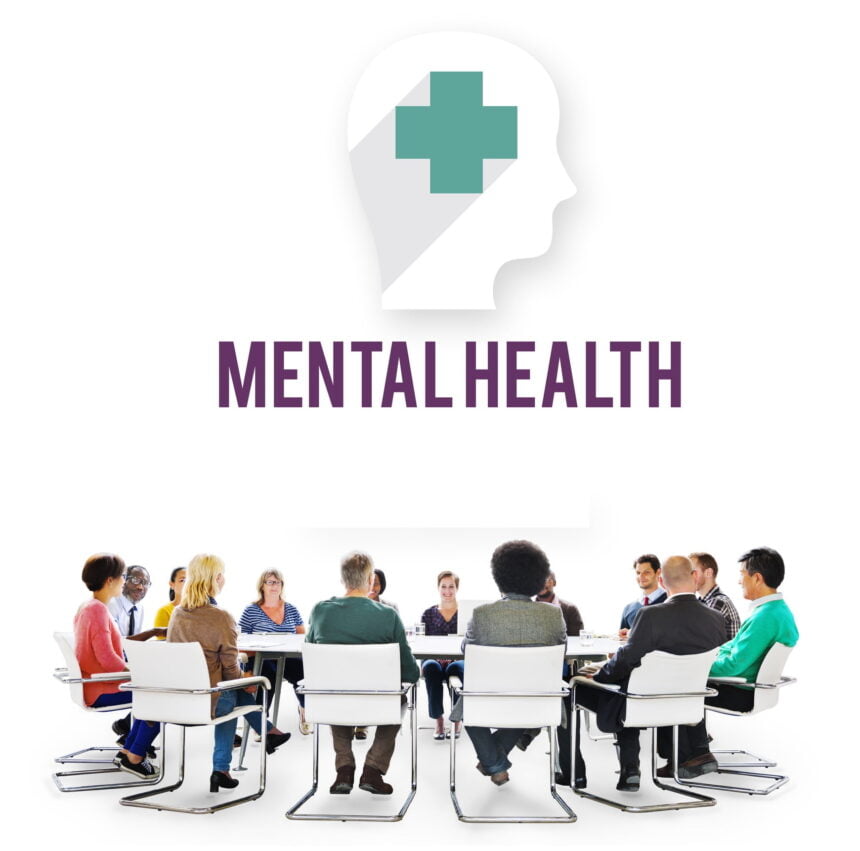In the U. S., one in every five adults is estimated to suffer from some form of mental illness. It may include anything from depression and anxiety to bipolar disorder and schizophrenia. Unfortunately, only about 40 percent or almost a half of those with mental illness receive treatment.
One possible reason for this could be that, many people don’t know their options or how they can get access to mental health treatment. Community-based treatments, which are a form of outpatient care for mental illness, can be a practical option in the treatment process.
To understand community-based treatment, it’s essential to know what community mental health is.
What Is Community Mental Health?
Community mental health, or CMH, is a term used for activities that promote mental health performed in a local community rather than in an institution or hospital setting. These activities may be incorporated in services including outpatient care, day treatment, supported employment and housing, and case management depending on the case and needs of the patient.
CMH programs began popping up in the United States in the 1950s to provide mental health services to those who did not have access to them. The idea behind CMH is to promote mental health through services available to everyone, regardless of their financial status or location.
Nowadays, more than 4,000 outpatient mental health clinics and community mental health organizations offer CMH services. To meet the needs of their local communities, they provide different services like professional counseling in Idaho Falls. These services can be beneficial for those who have a mental illness.
Community mental health centers offer services that range from medication management and counseling/therapy to assistance with housing and employment. The idea behind the community-based treatment is that people with mental illness should have access to various services that meet their specific needs instead of just one or two services from a single provider.
Community mental health centers are staffed by various professionals, including psychiatrists, psychologists, social workers, psychiatric nurses, and therapists. Depending on the needs of those they serve, CMH can also provide case managers for medical needs or addiction counselors.
How Can Community-Based Treatment Help?
Community-based treatment can help mental health patients in many ways.
- It can provide access to mental health services that may not be available elsewhere. It includes services like therapy, medication management, and supported employment.
- Community-based treatment can help patients connect with resources in their community. It includes support groups, housing assistance, and job training programs.
- Community-based treatment can provide support for patients and their families. Family members can meet with other family members of people with mental illness to get support and advice.
- This type of treatment encourages involvement in the community. Patients can volunteer in places like schools, libraries, or hospitals. They can also attend events that are held in their communities.
- Community-based treatment helps ease the transition from an inpatient setting to life outside of a hospital. Patients gradually take on more responsibility and independence while at a CMH center.
- Lastly, it encourages patients to manage their illness actively. Community-based treatment is often used in combination with medication or therapy, so patients can work together to improve their symptoms and overall health.
What Are The Features Of CMH Centers?
There are several common features of community mental health centers. These include the following services:
- Outpatient care: This is the most common form of community-based treatment. Patients typically attend therapy and counseling sessions at a clinic or community center. In this setting, they’ll meet with a professional counselor or therapist. The services provided in the clinic are usually covered by medical insurance. Outpatient care is an effective way to work on issues like depression and anxiety.
- Day treatment: This involves attending day-long sessions at a treatment center instead of going to work or school. Patients receive group therapy, medication management, and other services during their visit. Day treatment is a good option for those who need more support than outpatient care can provide.
- Supported employment and housing: These programs provide support for those struggling to maintain employment or housing. Services can include job training, job seeking, and assistance with rent or mortgage payments.
- Case management: Case managers work with patients one-on-one to help them with their treatment plans, coordinate care with other providers, and monitor their progress. Case managers can help patients connect with resources in their community.
- Peer support: This type of support is provided by people who have been in the same situation as patients. They may be people who have dealt with mental illness themselves or family members and friends of those who have mental illness. Peer support can be constructive for patients as they work through their treatment.
- Self-help programs: These are programs that patients can attend on their own. They offer education and support for those who are trying to manage their mental illness. Programs like these are valuable because patients can access them any time.
- Court diversion programs: These programs help divert mentally-ill patients out of the legal system and into community-based treatment. With court diversion, police officers and judges can refer a patient to these programs instead of taking them to jail or prison.
- Mobile crisis teams: These are teams of mental health professionals who help those struggling with mental illness in their homes. A mobile crisis team may be called by a patient’s family members, school staff, or law enforcement. They can help connect patients with services in their community.
What Treatments Do They Offer?
It’s essential to understand that though CMH offers care to those with mental illness, they don’t replace the role of a traditional psychiatrist or therapist. Patients will likely still need to see their regular doctors or therapists for medication and talk therapy.
However, CMH centers offer a range of treatments primarily provided to outpatients and tailored to patients’ individual needs. Some of these may include the following:
- Substance abuse treatment: This treatment can help patients overcome addiction to drugs or alcohol. With the proper care, many people can overcome their habits and stop using drugs or excessive drinking.
- Medication management: This is the process of working with a doctor to find the proper medication for mental illness. Sometimes, it may take a patient a few attempts before finding the appropriate medication, so with the help of doctors and pharmacists, patients may finally be able to get relief from their symptoms.
- Psychological counseling: Counseling can provide patients with the coping skills to manage their mental illness. It can also help them understand the root of their problems and address them.
- Psychoeducation: This type of education helps patients learn more about their mental illness. It can teach them about the signs and symptoms of their disease, manage their condition, and stay healthy.
- Psychotherapies: Patients may be able to choose from a range of treatments that are tailored to their specific needs. These can include cognitive behavior therapy, dialectical behavior therapy, family-based treatment, and other types of therapies.
- Social rehabilitation services: This type of service helps patients become more independent in their daily lives. Social rehabilitation can include teaching patients how to cook, budget their money, and take care of themselves.
- Diagnostic evaluation: This process helps doctors determine if a patient has a mental illness. It can also help doctors find out more about the severity of the illness and what treatments may be best for the patient.
- Screening: CMH also offers screenings for mental illness. It’s a process in which patients are screened for certain mental illnesses. If they have a mental illness, they’ll be referred to the appropriate treatment center.
Who Can Access Community-Based Treatment Centers?
Community-based treatment centers offer many options for the treatment of mental illness. They can be beneficial to people who have mild to moderate mental illnesses. It may include people who are experiencing:
- Difficult life changes
- Depression
- Anxiety
- Stress
- Trauma
- Grief
- Parenting issues
- Relationship problems
- Employment difficulties
- School-related problems
CMH services are typically offered to people who are 18 years of age or older. Although, some centers may provide services to younger people on a case-by-case basis.
However, though community-based treatment centers may benefit patients with mental illness, they’re not recommended for everyone. Patients who shouldn’t use community-based treatment centers include those with the following:
- Severe mental illness: Community-based treatment centers may not be recommendable for patients with severe mental illness. These patients need more intensive care and should seek treatment at a psychiatric hospital or inpatient program. Although, some centers may offer these to patients on a case-by-case basis.
- Suicidal tendencies: Although many community-based centers may benefit patients with suicidal thoughts, they’re not recommended for patients with suicidal tendencies. Their needs will likely be better met in a psychiatric hospital, where they can receive close supervision and monitoring.
- Acute psychiatric symptoms: Patients experiencing acute psychiatric symptoms, such as hallucinations or delusions, should not attend community-based treatment centers. They need more intensive care and should seek treatment at a psychiatric hospital.
- Mental retardation: Patients with mental retardation shouldn’t use community-based treatment centers. They need more intensive care and should seek treatment at a psychiatric hospital or inpatient program.
Community-Based Treatment VS Hospitalization Or Institutional Care
There are several benefits associated with community-based treatment programming compared to hospitalization or institutional care. These include:
- CMH is less expensive than hospitalization or institutional care. For instance, day treatment programs may cost $20-$45 per day, whereas inpatient care can cost over $400. Many services are free or low-cost through CMH.
- CMH can also be less restrictive than hospitalization or institutional care. Patients can go to CMH on their own and choose what happens during their treatment. In this way, they can maintain some of their independence.
- CMH can empower patients to take control of their recovery process. It provides them with the tools to manage their mental health conditions. Patients can work on these issues in a supportive environment to help them feel more confident in their abilities.
- CMH is more accessible than hospitalization or institutional care because it allows patients to live in the community. It’s crucial for those with jobs, families, or other responsibilities.
- Community-based treatment encourages family involvement in patient care, benefiting all parties. Families can learn about mental illness and support their loved ones best. They can also provide emotional support.
- CMH can promote socialization and employment opportunities instead of isolation and dependency. It can be significant for those with severe mental illness because it can help them feel more connected to the community.
- CMH programs are flexible, which allows them to adapt to the changing needs of patients. Unlike hospitalization or institutional care, CMH programs are not bound by bureaucratic rules.
- CMH programs are patient-driven, meaning that it’s based on specific needs and goals for recovery as identified by patients, allowing for a more individualized approach to treatment.
Although many benefits are associated with community-based treatment, it doesn’t work for everyone. Some patients may feel uncomfortable being out in the community after experiencing mental illness. There are even times when the cause of mental illness is unknown. That’s why it’s important for people to seek professional help.
Are There Drawbacks to Community-Based Treatment?
There are some drawbacks to community-based treatment as well. These include:
- CMH can be difficult to access, especially if a patient lives in a rural area or lacks transportation.
- CMH services may not be available in all communities.
- Not all CMH services are the same. Some programs may be more beneficial than others.
- Patients may not find the right CMH program that meets their needs.
- CMH can be time-consuming. Patients may have to attend several sessions each week.
- CMH can be challenging, especially if a patient isn’t motivated to recover or wants to participate in treatment.
- Family members and loved ones may feel overwhelmed or stressed out if they provide care for a loved one with mental illness.
Although there are some drawbacks to community-based treatment, the benefits outweigh them by far.
What Are the Challenges In The CMH?
Despite its many benefits, community-based treatment faces challenges. Some of these include:
- There’s a lack of awareness about CMH. Many people don’t know what it is or if their communities have mental health services available.
- Some patients may feel the stigma associated with being diagnosed with a mental illness. They may not want others to know, or they may be afraid of how people will react if they find out. It can prevent many from seeking help.
- There’s a lack of funding and a pool of trained professionals who can offer CMH services. It’s especially true in rural communities.
Mental health advocates continue to work hard to make CMH more accessible with these challenges in mind. They’re increasing awareness about what community-based treatment is and why it matters.
Final Thoughts
The features and advantages of community-based treatment are many, which is why it’s becoming an increasingly popular option for those who need help. This treatment can provide hope and healing for those struggling with mental illness. If you or someone you know is struggling with mental illness, please don’t hesitate to look into CMH programs in your area. Fighting mental illness can be difficult, but it’s possible with the right support system in place.










